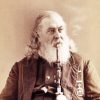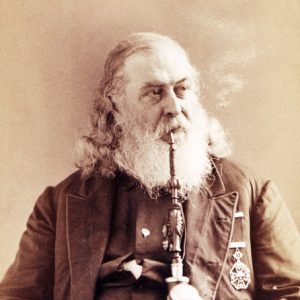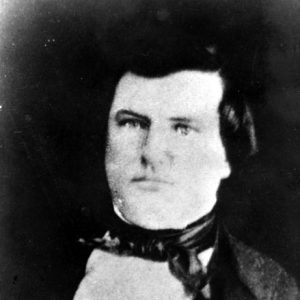calsfoundation@cals.org
Pike-Roane Duel
aka: Roane-Pike Duel
The Pike-Roane Duel was fought in 1847 between Albert Pike and John Selden Roane. Albert Pike was originally a Bostonian who left the Northeast to explore the West and eventually ended up in Arkansas on an expedition. He decided to stay, practicing law and becoming a prominent Arkansan. John Selden Roane, born in Tennessee, moved to Arkansas to study law and eventually was elected governor.
Both Pike and Roane fought in the Mexican War in the 1840s. Pike was so disappointed with the Arkansas regiment’s performance in the Battle of Buena Vista (including events leading to the battlefield death of former Arkansas governor and congressman Archibald Yell) that he wrote a letter on March 8, 1847, to the editor of the Arkansas Gazette on the subject. He felt that leaders of the Arkansas regiment were appointed politically and not based on leadership skill. Roane, having been a lieutenant colonel in the regiment, took great offense to this letter. A court of inquiry, requested by Pike, was held on May 24, and seemed to settle the issue. After returning to Little Rock (Pulaski County), Pike learned that Roane had previously published letters stating that Pike had not been in action at Buena Vista. On this occasion, Pike took offense. Shortly thereafter, a challenge was issued, accepted, and scheduled. Many historians believe that Roane issued the challenge, but Pike biographer Walter Brown recorded that it was issued by Pike.
The duel took place during the early morning of July 29, 1847, along the Arkansas River in what was Indian Territory at the time. Since dueling had been banned in Arkansas Territory in the 1820s after the Allen-Oden duel and was thereafter punishable by death, the men had agreed upon this location. Pike’s seconds (friends who would accompany the combatants to see that things were carried out fairly) were John Drennen and Luther Chase, and his surgeon was Dr. J. A. Dibrell. He was also accompanied by Dr. T. Thurston, William H. Cousins, and Pat Farrelly. Roane’s seconds were future Arkansas senator Robert Ward Johnson and future Arkansas governor Henry Massie Rector, while Dr. Philip Burton served as his surgeon.
The first shots missed their targets, which was common in duels at the time. For the second round, the bullets grazed their targets. At this point, some parties in the duel were willing to undertake a third shot, but others were against it. Finally, after heated discussion, both sides decided to end the duel honorably for both main participants, meaning that neither Pike nor Roane would win or lose. They settled on terms to end the duel and their disagreement, and later had them published in the newspaper. After it was over, Pike and Roane shook hands, and both parties, along with several others, attended a banquet in Fort Smith (Sebastian County).
The duel had no effect on the careers of either man. Pike eventually moved to New Orleans, Louisiana, for business ventures but returned to Arkansas a few years later, where he became involved in politics and later served the Confederacy during the Civil War. Roane became governor of Arkansas and also fought in the Civil War.
For additional information:
Allsopp, Frederick William. Albert Pike: A Biography. Little Rock: Parke-Harper, 1928.
Brown, Walter L. A Life of Albert Pike. Fayetteville: University of Arkansas Press, 1997.
Donovan, Timothy P., Willard B. Gatewood Jr., and Jeannie M. Whayne, eds. The Governors of Arkansas: Essays in Political Biography. 2nd ed. Fayetteville: University of Arkansas Press, 1995.
Sherwood, Diana. “The Code Duello in Arkansas.” Arkansas Historical Quarterly 6 (Summer 1947): 186–197.
Watts, J. Carter. “The John S. Roane–Albert Pike Duel.” Jefferson County Historical Quarterly 12.1 (1984): 4–11.
M. V. Bowks de la Rosa
University of Maryland








Comments
No comments on this entry yet.